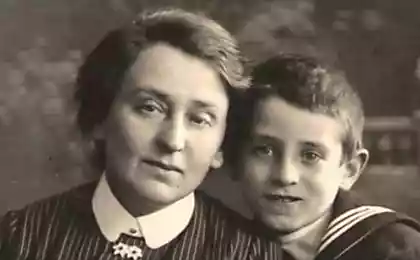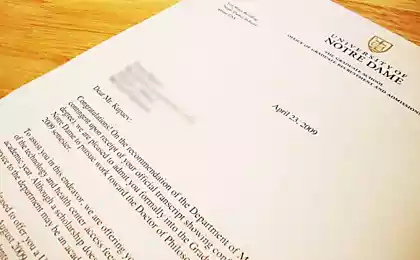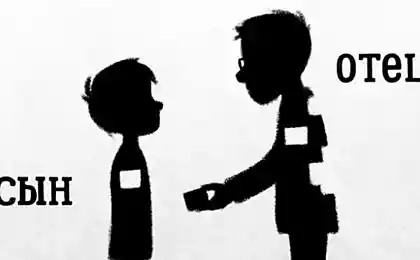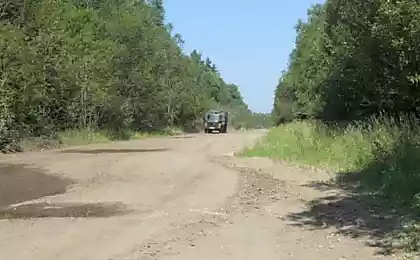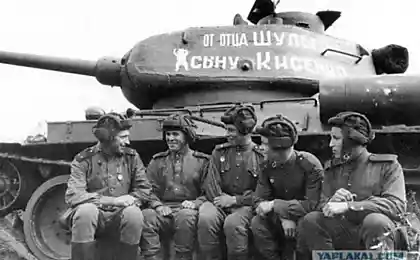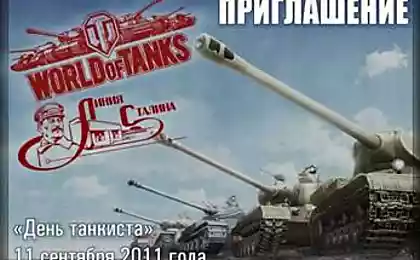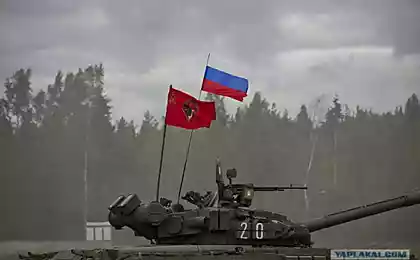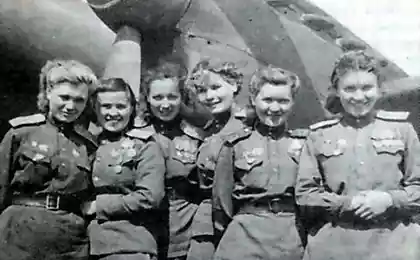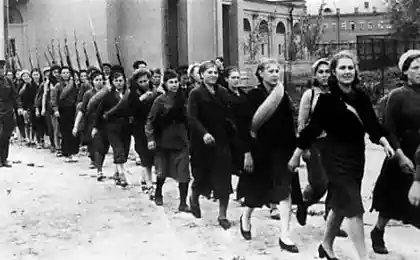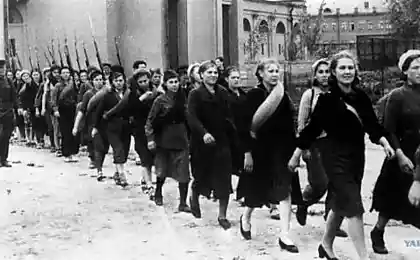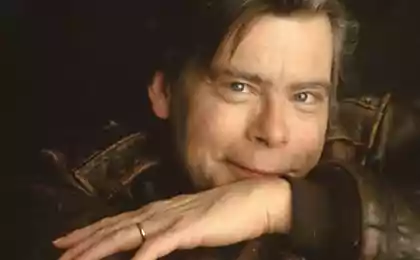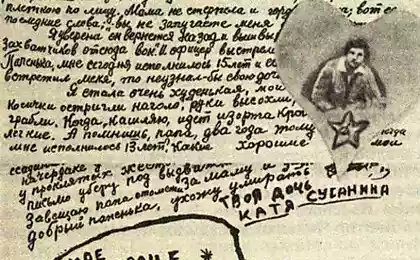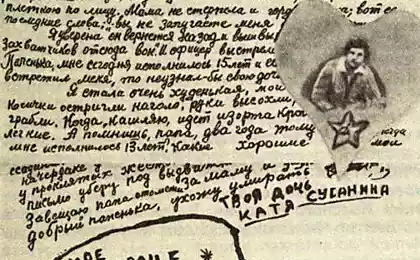1250
Letter mortally wounded tankman
I buried Vasily Orlov in a birch grove. It was light. Basil died before he could tell me a word, nothing is handed to its beautiful white-haired Masha and Zoe-like dandelion fluff in.
So of the three tankers left alone.
In sutemeni I drove into the woods. The night passed in agony, lost a lot of blood. Now for some reason, the pain, Burn the entire breast, and lay down in my soul silently.
It's a shame that we have not done everything. But we did everything we could. Our comrades hunt an enemy that should not go to our fields and forests.
I never would have lived life as if it were not for you, Varya. You helped me always: on Khalkhin- here. Perhaps, after all, who likes the kind to people. Thank you, dear! The man is aging, and the sky forever young, like your eyes that just look so admire. They will never grow old, do not fade.
As time passes, people will heal wounds, people built new cities grow new gardens. There will come another life, some songs will be sung. But never forget a song about us, about three tankers.
You will grow beautiful children, you are still going to love.
And I'm happy that I'm leaving you with a great love for you.
Your Ivan Kolosov.
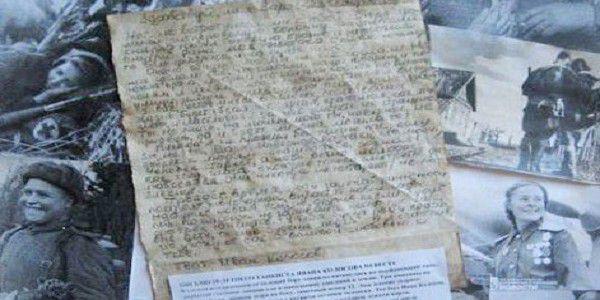
In the Smolensk region, in one of the roads, on a pedestal stands a Soviet tank bearing the number 12. On this machine, all the first months of the war fought Lieutenant Doronin Kolosov - tanker personnel, who began his fighting way more of Khalkhin Gol.
The crew - commander Ivan Kolosov, mechanic Paul Rudow and loader Vasily Orlov - as well as possible like a character popular in pre-war time songs about three tankmen:
Three tankers are three gay friend
- The crew of combat ...
Fighting the Nazis were brutal. Enemy per kilometer Soviet land to pay hundreds of corpses of its soldiers and officers, destroyed dozens of tanks, cannons, machine-guns. But dwindling ranks and our soldiers. In early October 1941 on the outskirts of the Vyazma immediately froze eight of our tanks. Get damaged and the tank Ivan Kolosov. Killed Paul Rudow, was wounded himself Kolosov. But the enemy was stopped.
By nightfall, we managed to start the engine and the tank number 12 disappeared in the forest. We collected from destroyed tanks shells, ready for a new battle. In the morning we discovered that the Nazis, this section of the front rounded, yet advanced to the east.
What to do? Fight alone? Or throw a damaged car and the way to his? Consulted with the commander charged and decided to squeeze out of the tank all possible, and to fight here in the rear, to the last shell, to the last drop of fuel.
October 12 tank number 12 pulled out from an ambush, suddenly at full speed collided with the enemy column, and scattered it. On that day, it was destroyed about a hundred Nazis.
Then the fighting moved east. On the road tankers repeatedly attacked convoys and convoys of the enemy, and once crushed "Opel Captain," which rode some fascist bosses.
There was October 24 - the day of the last battle. About him told his bride Ivan Kolosov. He had a habit of regularly write letters Vare Zhuravlevoj that lived in the village of Ivanovka, near Smolensk. Lived before the war ...
In a remote and distant villages from forest-heath once came across a rusted tank, covered with thick legs and ate half gone into the ground. Three dents on the frontal armor, torn a hole in the side, a significant number 12. Luke tightly battened down. When the tank is opened, they saw human remains in the arms - this was Doronin Kolosov, a revolver with one cartridge and a tablet that contained maps, photographs, and several favorite letters to her ...
This story in the newspaper "Pravda" said E. Maximov February 23, 1971. Found Varvara Petrovna Zhuravlev and handed her a letter written Doronin Kolosov in October 1941.
The bright memory of the man survived, and we - the descendants must remember that our very existence is the result of those feats that made then people like Doronin Kolosov.
That's the story.
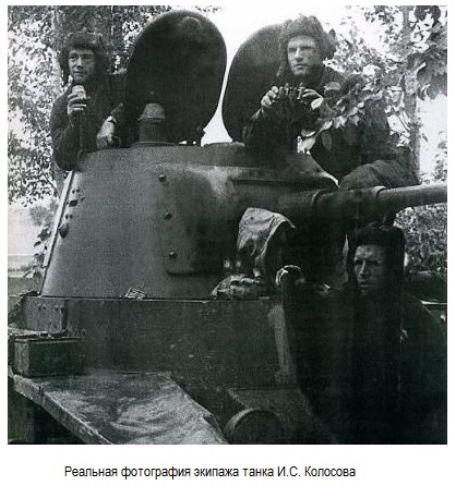
So of the three tankers left alone.
In sutemeni I drove into the woods. The night passed in agony, lost a lot of blood. Now for some reason, the pain, Burn the entire breast, and lay down in my soul silently.
It's a shame that we have not done everything. But we did everything we could. Our comrades hunt an enemy that should not go to our fields and forests.
I never would have lived life as if it were not for you, Varya. You helped me always: on Khalkhin- here. Perhaps, after all, who likes the kind to people. Thank you, dear! The man is aging, and the sky forever young, like your eyes that just look so admire. They will never grow old, do not fade.
As time passes, people will heal wounds, people built new cities grow new gardens. There will come another life, some songs will be sung. But never forget a song about us, about three tankers.
You will grow beautiful children, you are still going to love.
And I'm happy that I'm leaving you with a great love for you.
Your Ivan Kolosov.

In the Smolensk region, in one of the roads, on a pedestal stands a Soviet tank bearing the number 12. On this machine, all the first months of the war fought Lieutenant Doronin Kolosov - tanker personnel, who began his fighting way more of Khalkhin Gol.
The crew - commander Ivan Kolosov, mechanic Paul Rudow and loader Vasily Orlov - as well as possible like a character popular in pre-war time songs about three tankmen:
Three tankers are three gay friend
- The crew of combat ...
Fighting the Nazis were brutal. Enemy per kilometer Soviet land to pay hundreds of corpses of its soldiers and officers, destroyed dozens of tanks, cannons, machine-guns. But dwindling ranks and our soldiers. In early October 1941 on the outskirts of the Vyazma immediately froze eight of our tanks. Get damaged and the tank Ivan Kolosov. Killed Paul Rudow, was wounded himself Kolosov. But the enemy was stopped.
By nightfall, we managed to start the engine and the tank number 12 disappeared in the forest. We collected from destroyed tanks shells, ready for a new battle. In the morning we discovered that the Nazis, this section of the front rounded, yet advanced to the east.
What to do? Fight alone? Or throw a damaged car and the way to his? Consulted with the commander charged and decided to squeeze out of the tank all possible, and to fight here in the rear, to the last shell, to the last drop of fuel.
October 12 tank number 12 pulled out from an ambush, suddenly at full speed collided with the enemy column, and scattered it. On that day, it was destroyed about a hundred Nazis.
Then the fighting moved east. On the road tankers repeatedly attacked convoys and convoys of the enemy, and once crushed "Opel Captain," which rode some fascist bosses.
There was October 24 - the day of the last battle. About him told his bride Ivan Kolosov. He had a habit of regularly write letters Vare Zhuravlevoj that lived in the village of Ivanovka, near Smolensk. Lived before the war ...
In a remote and distant villages from forest-heath once came across a rusted tank, covered with thick legs and ate half gone into the ground. Three dents on the frontal armor, torn a hole in the side, a significant number 12. Luke tightly battened down. When the tank is opened, they saw human remains in the arms - this was Doronin Kolosov, a revolver with one cartridge and a tablet that contained maps, photographs, and several favorite letters to her ...
This story in the newspaper "Pravda" said E. Maximov February 23, 1971. Found Varvara Petrovna Zhuravlev and handed her a letter written Doronin Kolosov in October 1941.
The bright memory of the man survived, and we - the descendants must remember that our very existence is the result of those feats that made then people like Doronin Kolosov.
That's the story.


